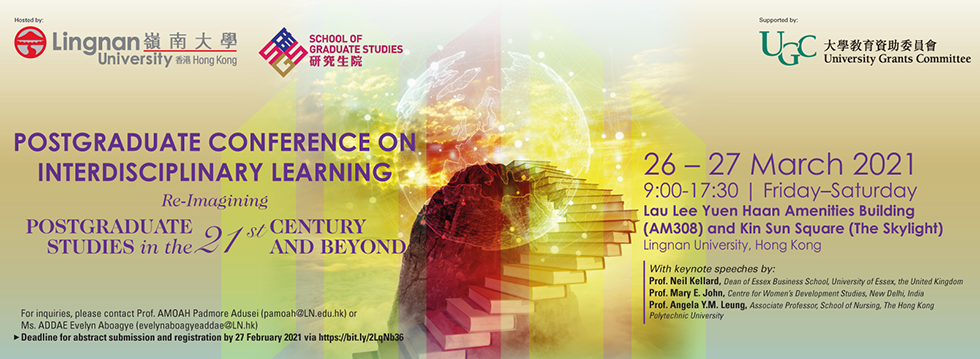
“We are parents”: Constructions of fatherhood and fathering among urban middle-class fathers in Zambia
Start Date
26-3-2021 4:30 PM
End Date
26-3-2021 4:45 PM
Description
This study explores the ways in which fatherhood is conceptualised, practiced, and interpreted in view of existing discourses. It employed mixed-methods approach based on 32 in-depth interviews with fathers, 25 with mothers, 5 couple interviews and survey data from 416 fathers. Results showed that the conceptualisation of fatherhood is shifting away from a simplistic view centred only on the hegemonic notion of fathers as financial providers, towards a more intensive and expansive one which includes other developments such as emotional expressiveness and physical care. Fathers showed a lot of anxiety and fear about the safety and future well-being of their children. The changed meaning of fatherhood was also revealed in their practices where, in the context of love and changed conception of children, fathers make masculine compromises and perform various childcare and housework tasks as a way of managing potential risks and taking care of children’s vulnerabilities even in the face of social scrutiny and ridicule for engaging in women’s work. Results also revealed that fathers negotiate their involvement by harnessing various strategies from taking advantage of existing discourses that people value, interpreting parenting as gender neutral, to the more subversive strategies such as owning the narrative labels and outright rejection of normative values. Findings also revealed the influence of various factors on the construction of fatherhood and fathering such as Christian religious doctrine, negative life experiences and fathers’ fear of suffering in old age if they did not establish close emotional ties with their children.
Recommended Citation
Mubita, A. (2021, March). “We are parents”: Constructions of fatherhood and fathering among urban middle-class fathers in Zambia. Presented at the Postgraduate Conference on Interdisciplinary Learning: Re-Imagining Postgraduate Studies in the 21st Century and Beyond. Lingnan University, Hong Kong.
“We are parents”: Constructions of fatherhood and fathering among urban middle-class fathers in Zambia
This study explores the ways in which fatherhood is conceptualised, practiced, and interpreted in view of existing discourses. It employed mixed-methods approach based on 32 in-depth interviews with fathers, 25 with mothers, 5 couple interviews and survey data from 416 fathers. Results showed that the conceptualisation of fatherhood is shifting away from a simplistic view centred only on the hegemonic notion of fathers as financial providers, towards a more intensive and expansive one which includes other developments such as emotional expressiveness and physical care. Fathers showed a lot of anxiety and fear about the safety and future well-being of their children. The changed meaning of fatherhood was also revealed in their practices where, in the context of love and changed conception of children, fathers make masculine compromises and perform various childcare and housework tasks as a way of managing potential risks and taking care of children’s vulnerabilities even in the face of social scrutiny and ridicule for engaging in women’s work. Results also revealed that fathers negotiate their involvement by harnessing various strategies from taking advantage of existing discourses that people value, interpreting parenting as gender neutral, to the more subversive strategies such as owning the narrative labels and outright rejection of normative values. Findings also revealed the influence of various factors on the construction of fatherhood and fathering such as Christian religious doctrine, negative life experiences and fathers’ fear of suffering in old age if they did not establish close emotional ties with their children.

